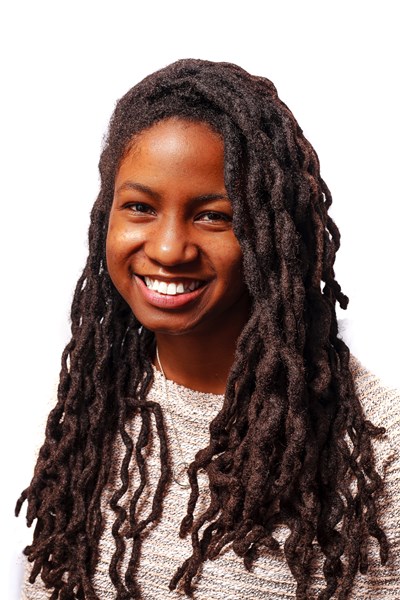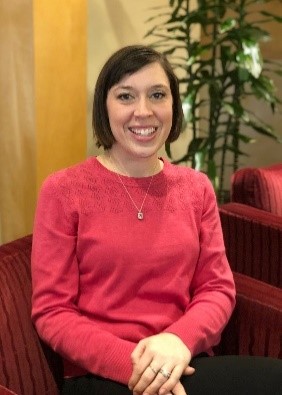Top-Level Takeaways
-
Philadelphia FCU started a financial literacy contest in 2018 to catch the attention of students at Temple University. This year, it shifted its outreach efforts to focus on clients of local nonprofit organizations.
-
Winners of these annual contests win financial counselling sessions, bragging rights, and, sometimes, cash prizes.
The financial educators at Philadelphia Federal Credit Union($1.5B, Philadelphia, PA) didn’t let the pandemic stop the cooperatives efforts to encourage financial wellnessin the City of Brotherly Love. Instead, it added a creative spin.
In 2018, PFCU launched its #StopMoneyShaming campaign to show college students how important it is to talk about finances. The campaign encouraged people to use the hashtag #StopMoneyShaming to share a money confession and help ease the stigma aroundtalking about financial problems.
We wanted to start a widespread conversation in hopes that we can encourage people to face their financial realities, realize they aren&’t alone, and provide them with the information they need to set and accomplish their goals, ErinEllis, an accredited financial counselor at PFCU, told CreditUnions.com in April that year.
In 2020, after the pandemic put a halt to in-person events, the credit union stepped up its financial awareness outreach with a contest for essays, poems, or artwork about what financial security means to them. Twelve entrants from local non-profit organizationsentered the contest, with the top prize of $1,000 going to Lillian Holt for her poem titled The Dreams We Can Afford.The second place winner, Patricia Edwards, received $500 for her essay about the struggles she has faced for food andshelter. Both women also received financial counseling sessions.

Lillian Holt, Philadelphia FCU financial literacy contest winner
Read Lillian Holts poem, The Dreams We Can Afford, and Patricia Edwards essay, What Does Financial Security Mean To Me?
The other 10 participants in the late fall campaign received a $25 Amazon gift card.
;Some could say we receivedonly 12 submissions, but 12 individuals took the time to put pen to paper and express their honest thoughts and share their experiences and thats a lot to ask from even just one person,Ellis says.
Here, Ellis talks about PFCUs financial literacy contests and some of its other work in that area.
Whats the story behind financial literacy contests at PFCU?
Erin Ellis: In April 2018, as part of Financial Literacy Month, we launched our #StopMoneyShaming campaign to encourage open discussion about financial topics and erase the stigma associated with such dialogue by documenting real-lifemoney confessions.
We set up tables in the student center of Temple Universitys campus, where PFCU has a branch, and encouraged passersby to write down a money secret and pose for a photo with their confession, which they posted to their social accounts with ourhashtag, #StopMoneyShaming, for a chance to win a prize.
The randomly selected winner received a Visa gift card and a free financial counseling session with me to help them achieve their money goals. We saw a lot of interest in this campaign and heard some fun responses in terms of money confessions from students dreaming of becoming millionaires to those hoping to graduate debt-free.
The #StopMoneyShaming campaign originating from PFCU is one example of the nationwide efforts the movement is leading. Read more in Credit Unions Celebrate Financial Literacy Month.
How has the pandemic changed that in-person element?
EE: Part of what made this campaign so meaningful and effective was that we were breaking down the stigma of talking about money by engaging with students face-to-face, hearing their money confessions firsthand, and talking with themon the spot about how PFCU could help them address their challenges and meet their personal finance goals.
We were scheduling our pop-up events for April 2020 when the pandemic hit, and we realized in-person activations of any kind werent going to be an option. We had to realign, but we wanted to keep the core of the programtalking about money the same.
For 2020, we were planning to take a polaroid of students holding up their money confession and make a mural out of the polaroids to hang in the window of the PFCU branch on Temples campus. When shifting to something virtual, we wanted to keepthat added layer of creative expression. Thats how we thought to pivot to the current contest.

Erin Ellis, Accredited Financial Educator, Philadelphia FCU
How do your financial literacy contests address money shaming among college students?
EE: The core challenge this program sought to address was breaking down the stigma of talking about money whether that be savings, spending, income, debt, anything related to money that might be considered tabooto bring up in conversation.
We wanted to address this challenge among college students, specifically, because they’re at an age where they’re on the cusp of entering the real world. By starting to think and talk about money in a more open manner without fearof judgement they could hone their financial literacy skills, setting them up for financial success.
What opportunities do your financial literacy contests address?
EE: Opening the door for conversations like this presents the opportunity to talk with others who might have a different financial situation than your own, gathering different perspectives and advice, which is invaluable at such a young,impressionable age.
Also, removing that stigma in students early adult lives increases the chance that, as they grow older and have children, they wont pass any stigma onto the next generation, and future generations will be able to talk about money freelyand productively.
Are your financial literacy contests just for college students?
EE: Not anymore. We originally designed the #StopMoneyShaming campaign with college students in mind, but in 2020 we shifted our approach with a new creative contest that reaches a different audience: Philadelphians who have turned tolocal nonprofit organizations for help. These individuals work with me routinelythrough a partnership with PFCU to learn about the basics of personal finance.
CU QUICK FACTS
PHILADELPHIA FCU
Data as of 12.31.20
HQ: Philadelphia, PA
ASSETS: $1.5B
MEMBERS: 121,937
BRANCHES: 12
12-MO SHARE GROWTH: 27.27%
12-MO LOAN GROWTH: 2.71%
ROA: 0.44%
How did you get the word out about this years contest? Who judged it?
EE: I sent emails to my contacts at each organization, who then shared the information with the individuals they work with. I also judged, and honestly, it was difficult to select just two winners. All of the entries were so thoughtfuland unique in their own way. Thats why we gave $25 Amazon gift cards to the rest of the participants as well.
How do your financial literacy contests fit into your overall financial literacy efforts?
EE: The contests both pre-pandemic and currently are just one component of PFCUs many financial literacy-based efforts. I work with a number of local nonprofit organizations to help individuals hone their skillsand learn about the basics of personal finance, because at the end of the day, its important to have a strong foundational understanding of money and how to manage it independently.
4 Tips To Host A Financial Literacy Contest
Erin Ellis shares takeaways from her 11 years as a financial educator in Philadelphia, including the past seven at Philadelphia FCU.
-
A financial literacy campaign does not have to be splashy. Its more important to reach and engage with individuals to discuss money in a productive way.
-
No in-person events? No problem shift to digital! Its important to continue promoting financial literacy in the present, regardless of how you do it.
-
Focus on quality, not quantity. A program is successful when participants understanding of personal finance strengthens and they feel comfortable expressing that. Focus on the impact the campaign has had on any scale; don’t get hung up on the metrics.
-
Make finance fun. People shy away from dealing with money matters or personal finance because money can be boring. So, engage people creatively. Let them select the method they feel is best suited for themselves, and they’ll be more eager to contribute.
We also publish posts to our Moneyline blog twice each month and host member webinars that touch on a number ofpersonal finance topics.
During the pandemic, our members are more bogged down in work and life than ever, and we want to reach members where they are with content thats pertinent to them. So, in 2021, we started Moneyline in a Minute,;which is a social extension of our Moneyline blog. Once a month, I narrate an animated video that details the key takeaways from a blog post in one minute or less.
We work hard year-round to arm our members with the information they need, from managing finances during a global pandemic to cutting down on monthly bills, to different ways to save for retirement. Its a constant effort one that we couldn’tpossibly envision slowing down.
What are your plans for the next contest?
EE: We’re running the same contest this year with middle school students through our partnership with Spark, a local nonprofit wve partnered withas part of ourPFCU Get to Work initiative thats aimed at helping the next generation workforce grow into careers in the region.
In the past, we hosted workshops with students in which we’d speak with them about what a credit union is and what a career path in this field could look like for them. We also sponsored an award for the organizations annual ceremony celebratingstudentsreal-life work projects.
We wanted to extend our work with Spark this year by opening up the creative contest to give students a chance to express what financial literacy means to them in their current stage of life.
Through a creative medium of their choice, they’ll be asked to respond to one of the following questions, with prize amounts of $500 for first place, $300 for second, and $200 for third:
- What does financial security mean to you?
- What financial goals have you set for yourself in 5 years? 10 years? 20 years?
- How do you currently practice making smart money decisions?
- What would you do with $500?
This interview has been edited and condensed.